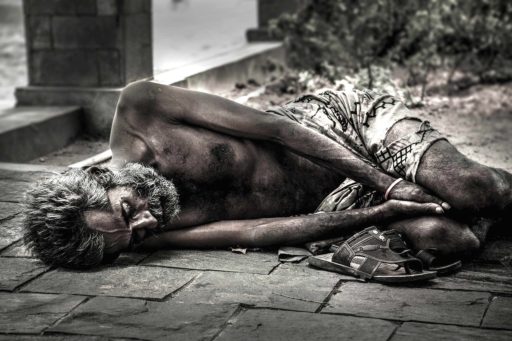It was the disaster in Ukraine that moved me to pull Theodore Dreiser’s Sister Carrie from my shelf. Not having read it since graduate school days decades ago, I recalled nothing about it except its gloom. But that was enough to make it an appropriate companion for current events.
Not that Sister Carrie is about war. But it is about violence: the violence with which society oppresses and even destroys individuals. The novel’s dominant color is dark.
Since I doubt many of you readers have read this novel recently, a plot summary is in order. At the start, eighteen-year-old Carrie is riding the train from her small hometown to Chicago, seeking a more exciting life. On the train she meets fellow passenger Charles Drouet, a traveling salesman with “good clothes,” good looks, smooth talk. After some weeks of an exhausting, unsuccessful job search, Carrie bumps into Drouet on a Chicago street. Her bedraggled clothes and paleness strike him, and he offers her money to buy new clothes. She demurs, but finally accepts—also accepting his offer to move into a nice apartment with him. Carrie is now a kept woman (though Dreiser doesn’t use the term, and sex is never mentioned). For her part, she’s just relieved to have what means the most to her: money, nice clothes, and security.
Drouet invites his friend George Hurstwood, manager of a local bar, to meet Carrie. And here the trouble begins. In a nutshell, whenever Drouet is away on business, Hurstwood visits Carrie; implicitly they’re having an affair, even though Hurstwood is married. His marriage is on the rocks, though; and one evening, while closing up the bar, he steals $10,000 to use to run away with Carrie. In order to lure her along with him, he lies to her that Drouet is ill in the hospital and wants Carrie to visit him. But instead of reaching a hospital, Carrie finds herself with Hurstwood on a train to Quebec. She’s furious at his deception and insists he marry her; he arranges a hasty “marriage,” which is likely fake since he’s already married. Then they go to New York City to settle down.
At first, life goes well for them. Hurstwood buys into a saloon, so they have money—though not enough for Carrie’s taste. When the saloon folds, Hurstwood starts looking for work. But, beat down by his lack of success, he eventually stops looking. Slowly he sinks into pauperism, becoming one among the hordes of hoboes in the Bowery and finally committing suicide.
Carrie, meanwhile, has left Hurstwood in disgust at his failure as a breadwinner. To make money, she gets work as a chorus girl, which—because of her natural talent—leads to success as an actress and a decent income. Yet happiness eludes her. The novel’s final lines are bleak:
Sitting alone, she was now an illustration of the devious ways by which one who feels, rather than reasons, may be led in the pursuit of beauty. Though often disillusioned, she was still waiting for that halcyon day when she should be led forth among dreams become real.…
Oh, Carrie, Carrie! Oh, blind strivings of the human heart!… It is when the feet weary and hope seems vain that the heartaches and the longings arise. Know, then, that for you is neither surfeit nor content. In your rocking chair, by your window dreaming, shall you long, alone. In your rocking chair, by your window, shall you dream such happiness as you may never feel.
To put it mildly, Sister Carrie paints a grim view of life. Hurstwood goes from a top position to way down, as far as a person can go in society, finally to suicide. Carrie goes from near society’s bottom to the top of fame and money—but she’s not happy. I see them on a seesaw: Carrie starts at the bottom, a young woman trudging Chicago streets looking for work, with Hurstwood at the top: successful manager of a Chicago saloon. During the course of novel, they slowly but inexorably switch positions.
I say “inexorably” because Dreiser sees fate controlling our lives. “Among the forces which sweep and play throughout the universe,” he writes in the novel, “untutored man is but a wisp in the wind.”
To get some literary historical context for Dreiser’s cheerless vision, I pulled from my shelves Alfred Kazin’s On Native Grounds: A Study of American Prose Literature from 1890 to the Present— his “present” being 1942. In his section on Dreiser, Kazin puts him in the school of American “naturalism”—which was “realism” in a darkened hue. If it’s nature (human nature, societal nature) that Dreiser is evoking, it’s definitely nature red in tooth and claw.
“Naturalism,” Kazin writes, “was Dreiser’s instinctive response to life”; it was “the only approximation of a life that is essentially brutal and disorderly.… What Dreiser gave to the cause of American naturalism was a unique contribution. By exploding in the face of the Genteel Tradition, Sister Carrie made possible a new frankness in the American novel.”
“A life that is essentially brutal and disorderly.” Exactly, alas, what we’re seeing in poor Ukraine.
Peggy Rosenthal has a PhD in English Literature. Her first published book was Words and Values, a close reading of popular language. Since then she has published widely on the spirituality of poetry, in periodicals such as America, The Christian Century, and Image, and in books that can be found here.





